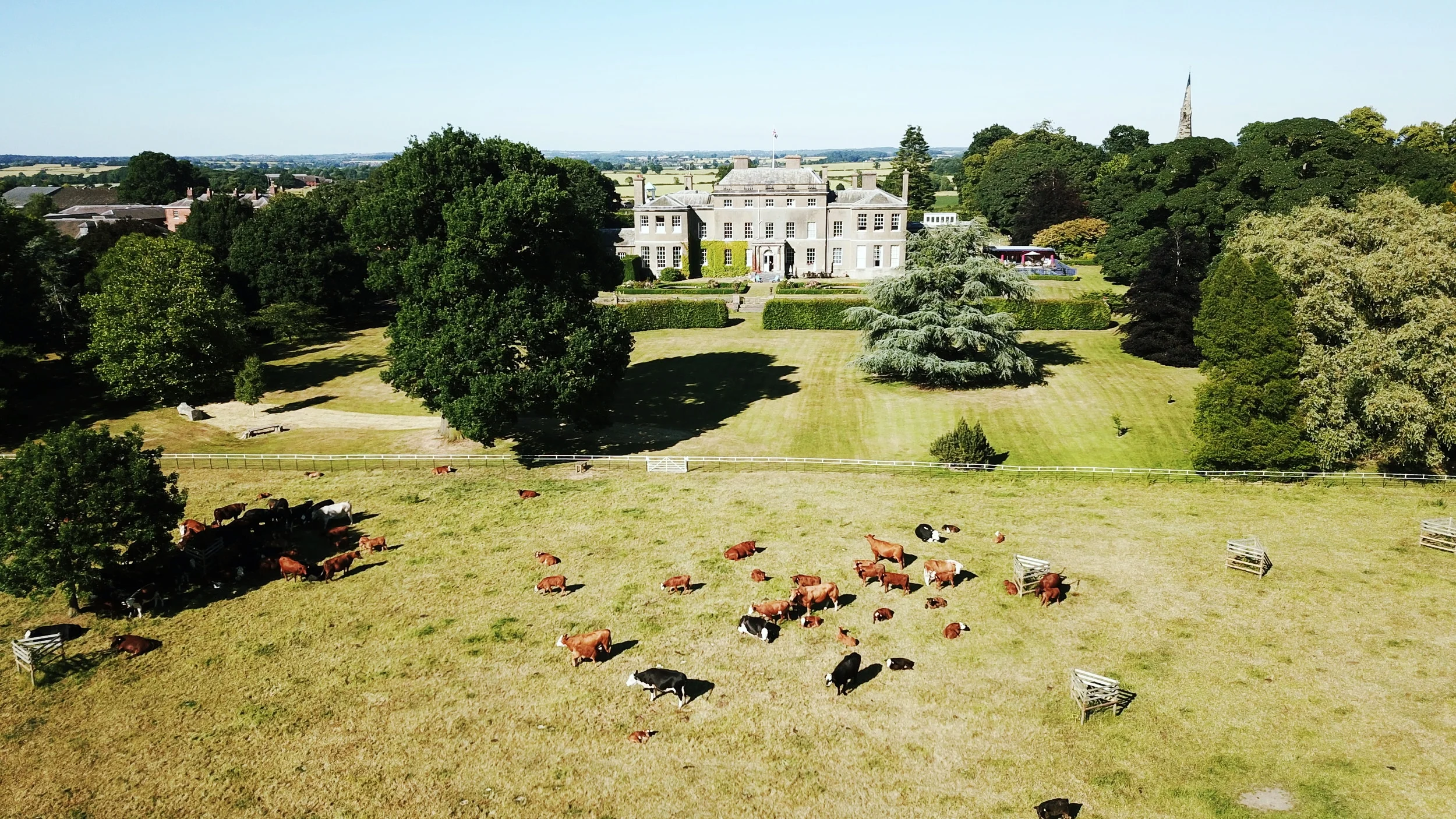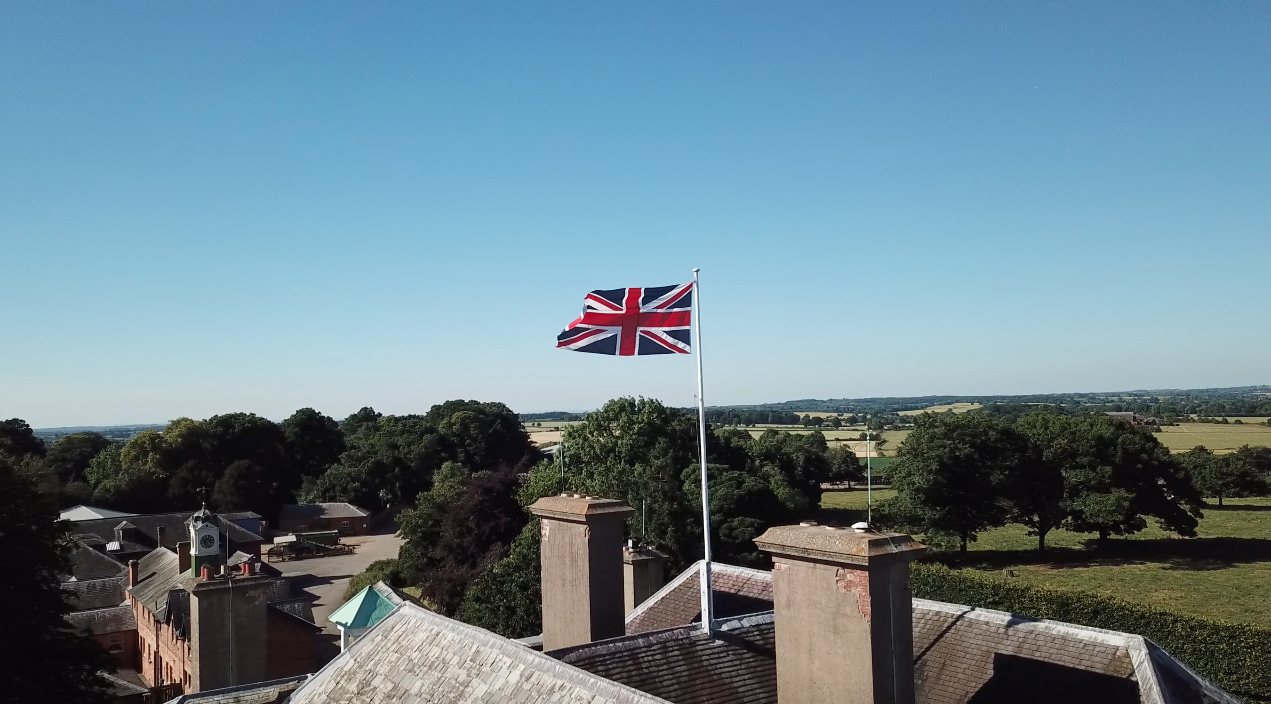History
William Ives, a successful wine merchant and Mayor of Leicester, purchased Thorpe Estate in 1631. His daughter and heir Jane married Richard Inge and the manor house, built in 1651, became the Inge family home. The Estate has been stewarded by successive generations of the Inge family for over three centuries, with several members serving as High Sheriff of Staffordshire.
Today
In 1953 the Estate passed to Elizabeth Violet Grizel Thomson, great-granddaughter of Colonel Charles Inge, via her cousin, Hilda Mary Inge. She married George Innes-Lillingston, and the couple appended Inge to their surname in order to inherit the Estate. George and Grizel set about restoring the Estate’s agricultural heritage and modernising the Hall and the Home Farm. In 1991, George was awarded the Bledisloe Gold Medal for Landowners by the Royal Agricultural Society of England, as well as serving as Crown Estates Commissioner (1974-1993), Deputy Lieutenant (1969) and High Sheriff of Staffordshire (1966).
George passed away in 2002, while Grizel continues to live on the Estate to this day. Her son Hugh Inge-Innes-Lillingston & his wife Catherine are residents at Thorpe Hall. Hugh serves as de-facto Head of Estate, while his brother Michael and wife Rosie created Thorpe Fisheries which they continue to manage. Hugh’s sister Susan followed in her father's (and ancestors’) footsteps by serving as High Sheriff of Staffordshire in 2013.
Farming & conservation
With the majority of the Estate devoted to agriculture, we put a strong emphasis on promoting animal welfare, enhancing biodiversity and protecting the rural environment for future generations.

Farming
At the centre of the Estate lies the Home Farm, which is managed by James Daw and his family, producing potatoes for McCain, Walkers & McDonalds, wheat for Warburtons, oats for Quaker, and beef for Waitrose. James has been spearheading conservation efforts and pioneering innovative farming techniques for over 20 years. In partnership with Cambridge University Farms and the Agricultural and Horticultural Development Board, James has delivered open days on the farm to evaluate agricultural innovation, and the Estate has also been used by leading machinery manufacturers to launch their new product lines. Recently James and his son Sam won the McDonald's Farm Innovation Award for new practices and the Golden Loaf for Warburton's best UK milling wheat.
Conservation
As with many country houses, the historic parkland surrounding the Hall is an integral part of the English countryside, forming a unique contribution to its character, its biodiversity and cultural heritage. Ongoing conservation efforts include establishing over 30 acres of wildflower meadows and planting 300 native specimen trees, while over 5 miles of additional hedgerows have been laid, providing vital habitats and food sources for wildlife. A 25 year forestry plan to manage the woodlands has been implemented, and the Estate also promotes public access and understanding of the countryside, and continues to host farm visits for local underprivileged children.
Contact us


